The best fleece jackets: mid layers to keep you cozy in the backcountry
We've tested the best fleece jackets to pinpoint the warmest, lightest and most eco-friendly options for your needs

All the latest inspiration, tips and guides to help you plan your next Advnture!
You are now subscribed
Your newsletter sign-up was successful
The best fleece jackets combine cozy warmth and breathability, meaning you can wear many of them all year round, whether on their own in spring and summer, or as part of a layering system during the depths of winter.
They can also make for a stylish outer layer on your commute or even in the office if the air conditioning is blasting away! Fleece fabric was a pioneer of recycled materials but now some brands are going further and offering a recycling service for your garment once it's reached the end of its life.
Fleece comes in many different forms, from high pile to ultra smooth, but in pretty much all instances, fleece is lighter than a wool sweater or pullover, while being more affordable and more durable than a down jacket.
For cold weather pursuits, the best fleece jackets should be paired with a moisture-wicking base layer and a protective outer layer like one of the best waterproof jackets. Remember, where warmth is concerned, many thin layers are better than one thick one.
Our expert testers have put these fleeces through their paces in a wide variety of conditions, to ensure they are up to the task of keeping your core temperature correct, whatever the time of year.
The quick list
This is the quick list, a snapshot of the best fleece jackets available now. To delve deeper into the features and qualities of each featured fleece, see our more detailed reviews further down the page in this guide.
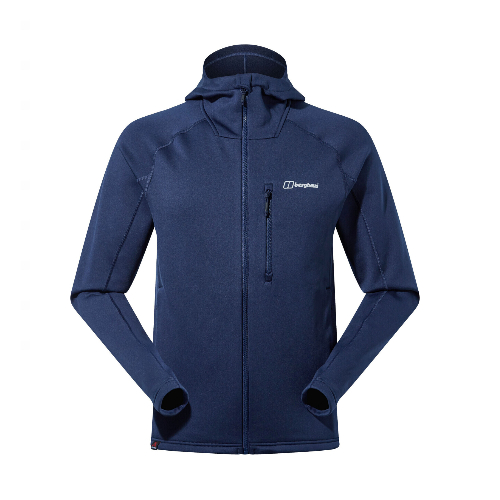
We're huge fans of this no frills, mid-weight hooded fleece, ideal for use as an outer layer in fall and spring, and a mid layer through winter. Our tester found themselves using it a lot more than others being tested, which says a lot
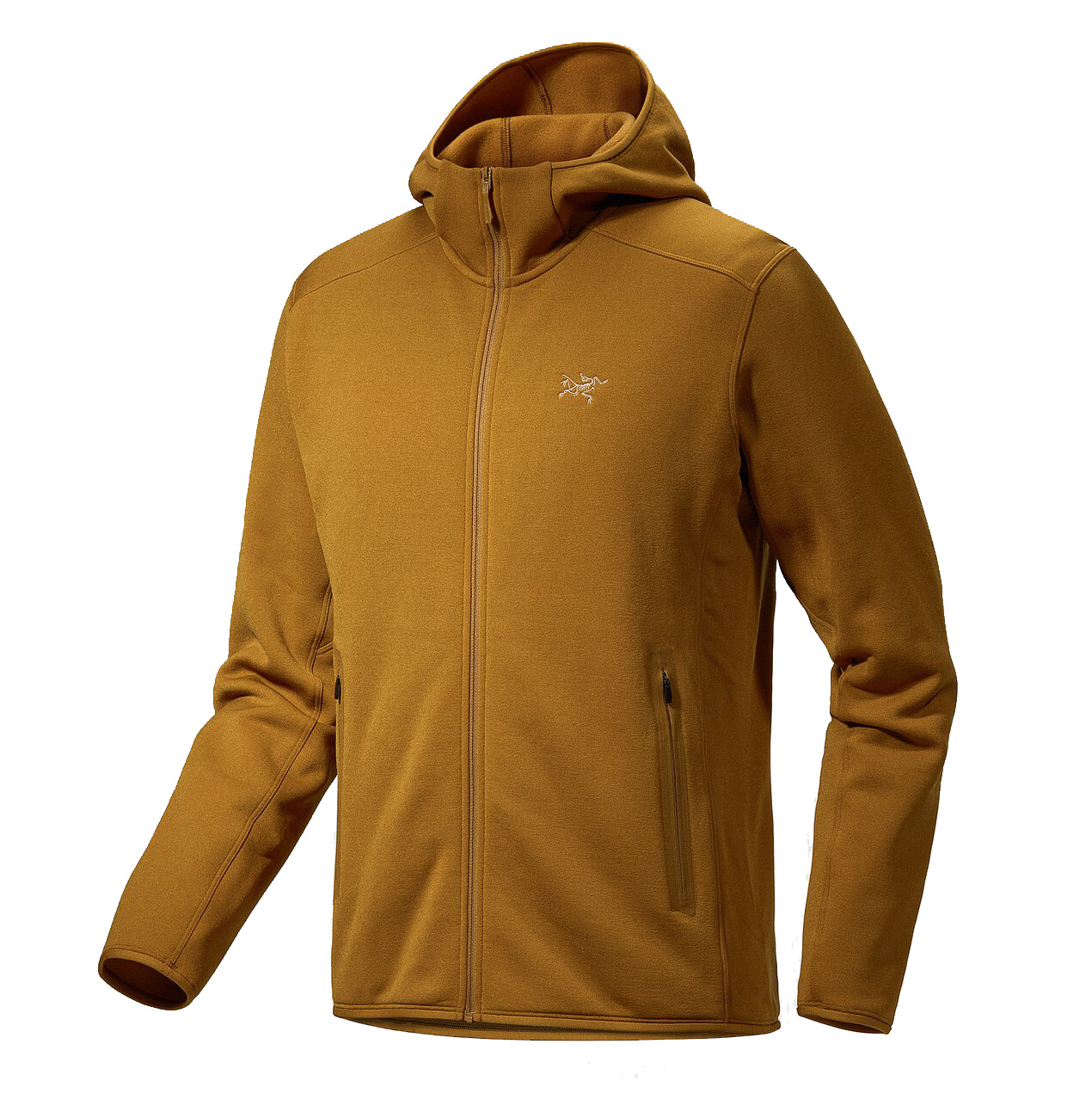
We enjoyed this lightweight, versatile mid layer that oozes quality and next-to-skin comfort and has an excellent warmth-to-weight ratio. The fit is on the neat side, but stretchy enough if your midriff is on the fuller side
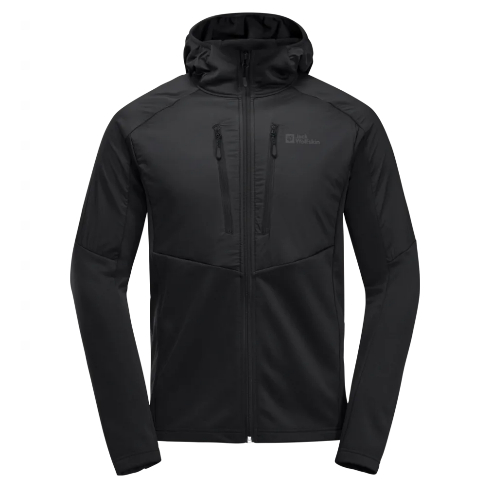
Feeling like a softshell but with the benefits of a fleece jacket, Our tester reckons this Jack Wolfskin offering will offer great weather protection and excellent warmth, as long as you don't mind the extra bulk
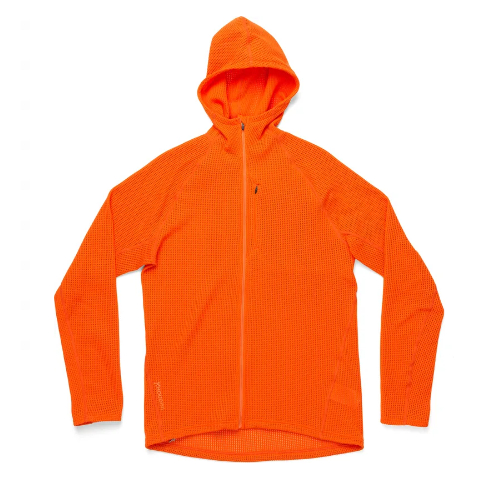
We think there's plenty to like about this lightweight, super-breathable hoodie – a great all-action mid layer. Our reviewer found plenty of thoughtful details including 100% recyclable material and a handy internal pocket
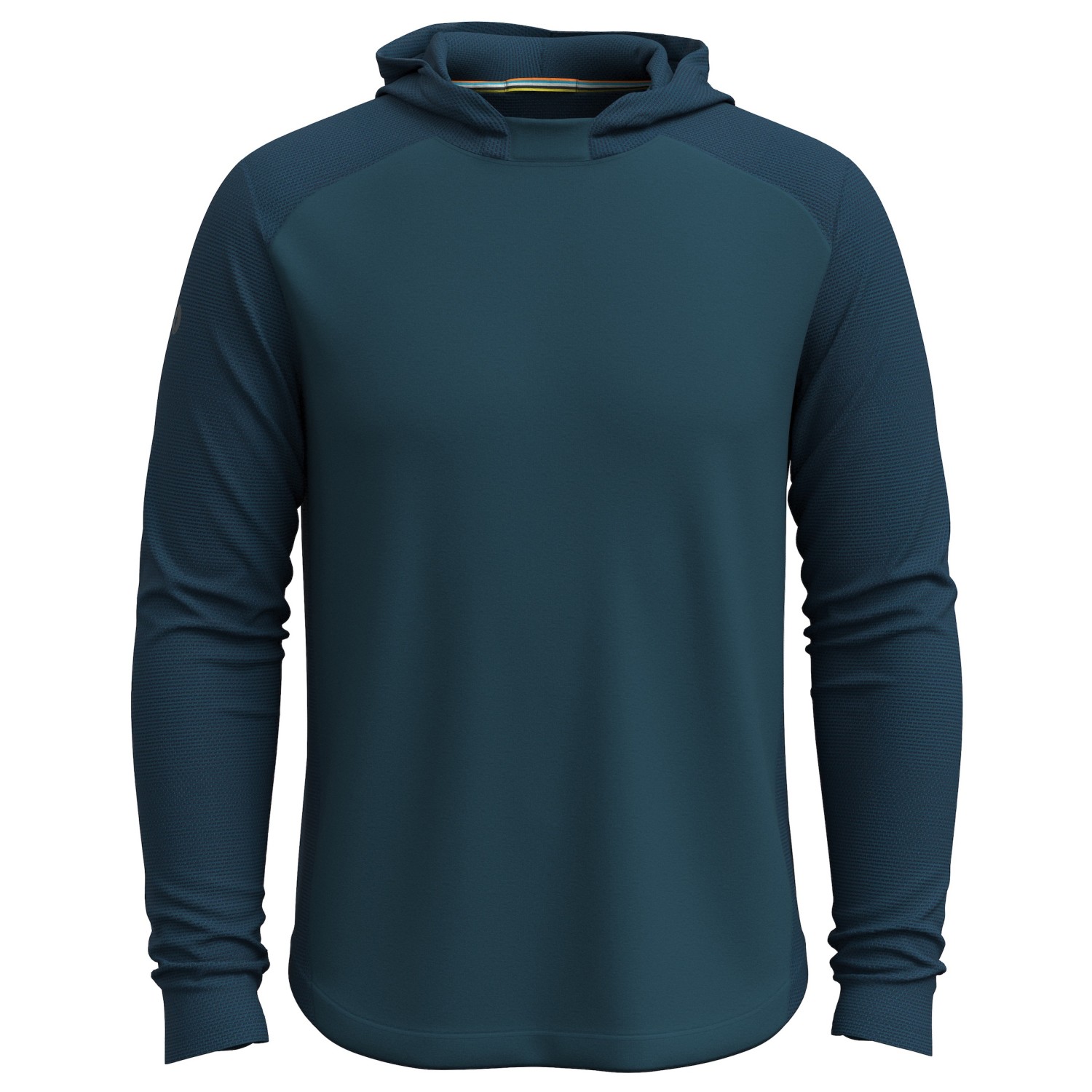
We approve of this versatile long-sleeved lightweight mixed-materia hoodie, which can be worn while doing a range of outdoor active adventures. Our tester reckons it will keep you covered for multiple seasons
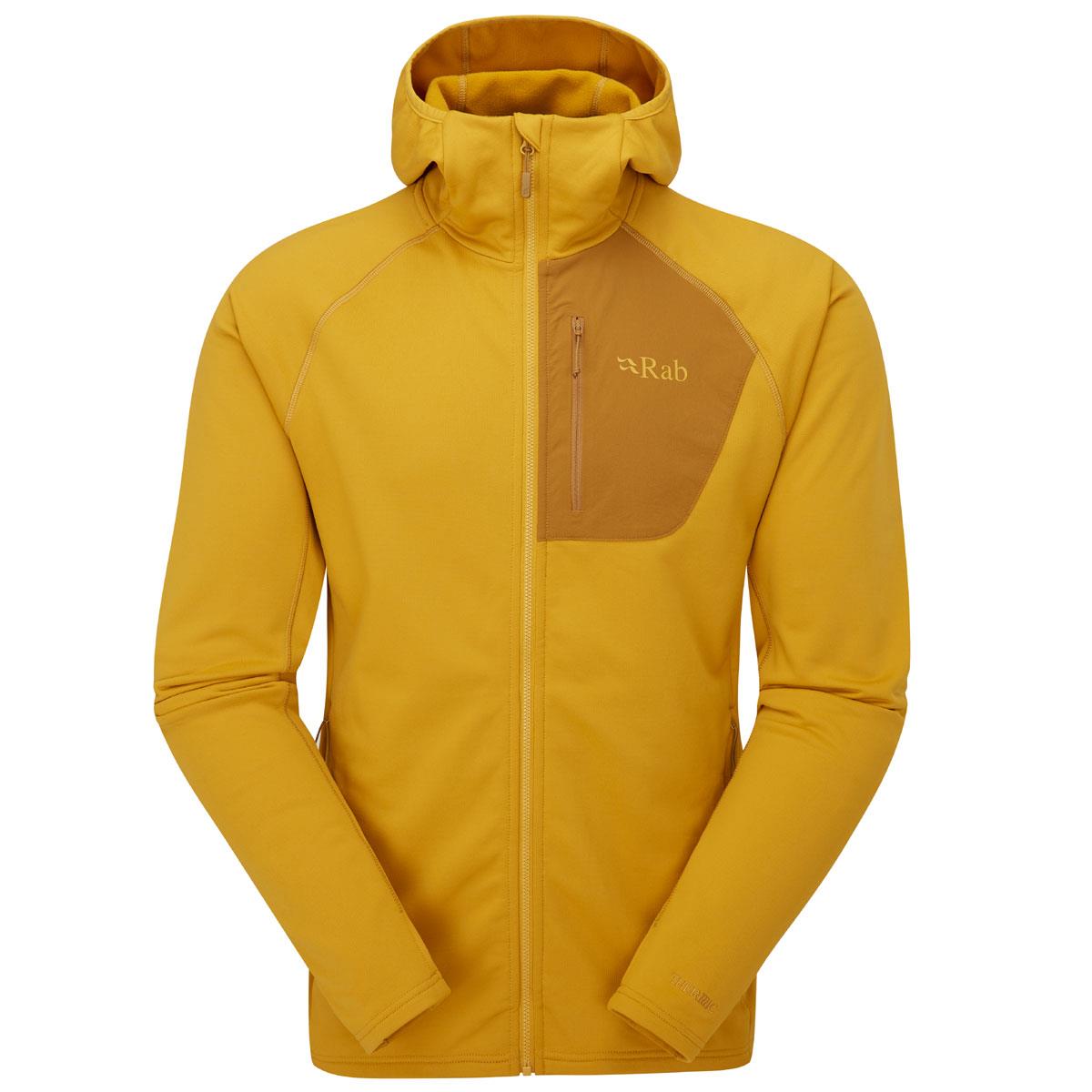
A lightweight mid layer, this is a garment to turn to if you're planning on testing your limits, thanks to its tight fit, breathability and lack of warmth compared to other mid layers. Our tester enjoyed its versatility too, meaning you can wear it during multiple seasons
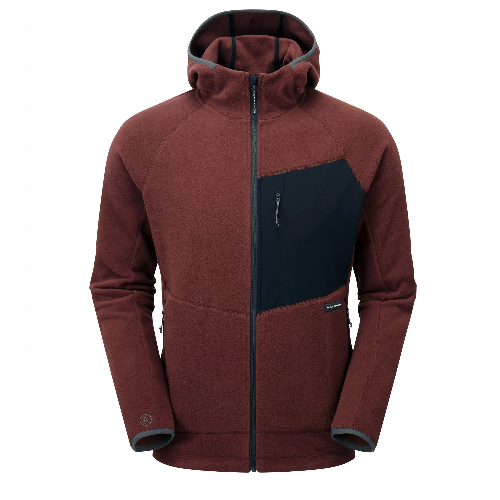
Our expert thinks this versatile fleece layer is super soft, highly breathable and provides excellent thermal insulation. It's very environmentally friendly too
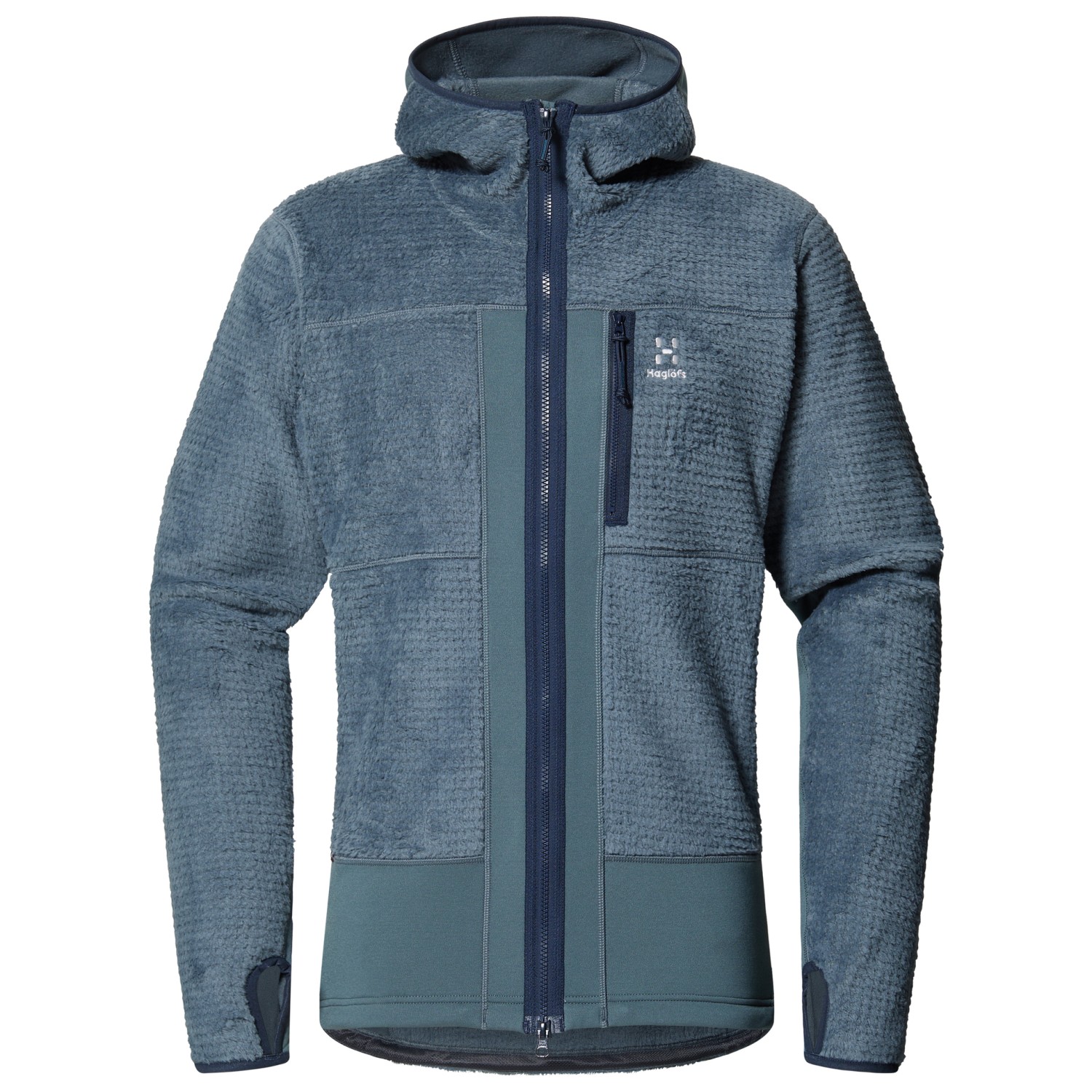
Our expert reckons the Haglöfs Vassi is a well-constructed piece that excels as a mid layer for skiing or snowboarding, giving you the stretch and breathability needed for tackling the slopes
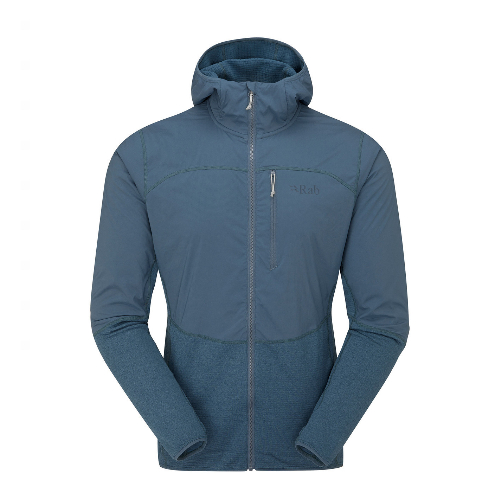
Our reviewer found this offering from Rab to perform well in harsh conditions, giving the wearer comfort and warmth while protecting them from the elements
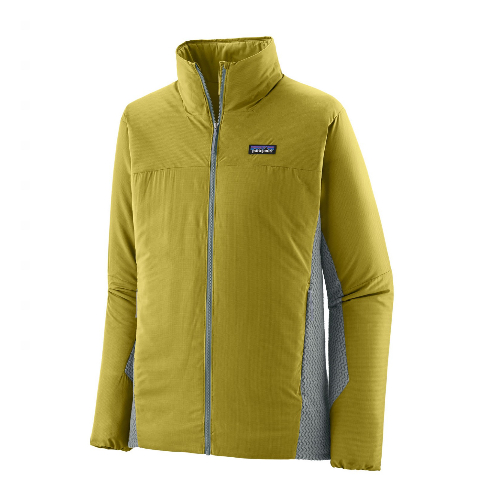
Our reviewer loved the versatility of this hybrid jacket, with Patagonia having created a lightweight mid-layer that's cozy and protective enough to wear all year round
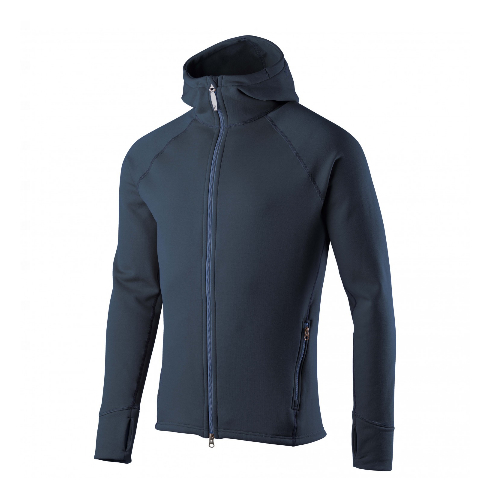
After 20 years on the market, our tester believes this top tier hoodie to be as worthy of your time and money as when it was first released
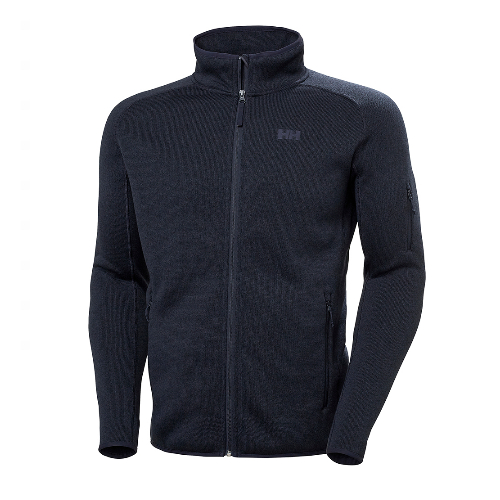
Suitable as both a mid-layer and outer-layer, our tester found the Varde Fleece Jacket 2.0 to be incredibly versatile, as well as of great quality
The best fleece jackets 2026
You can trust Advnture
The best fleece jacket overall
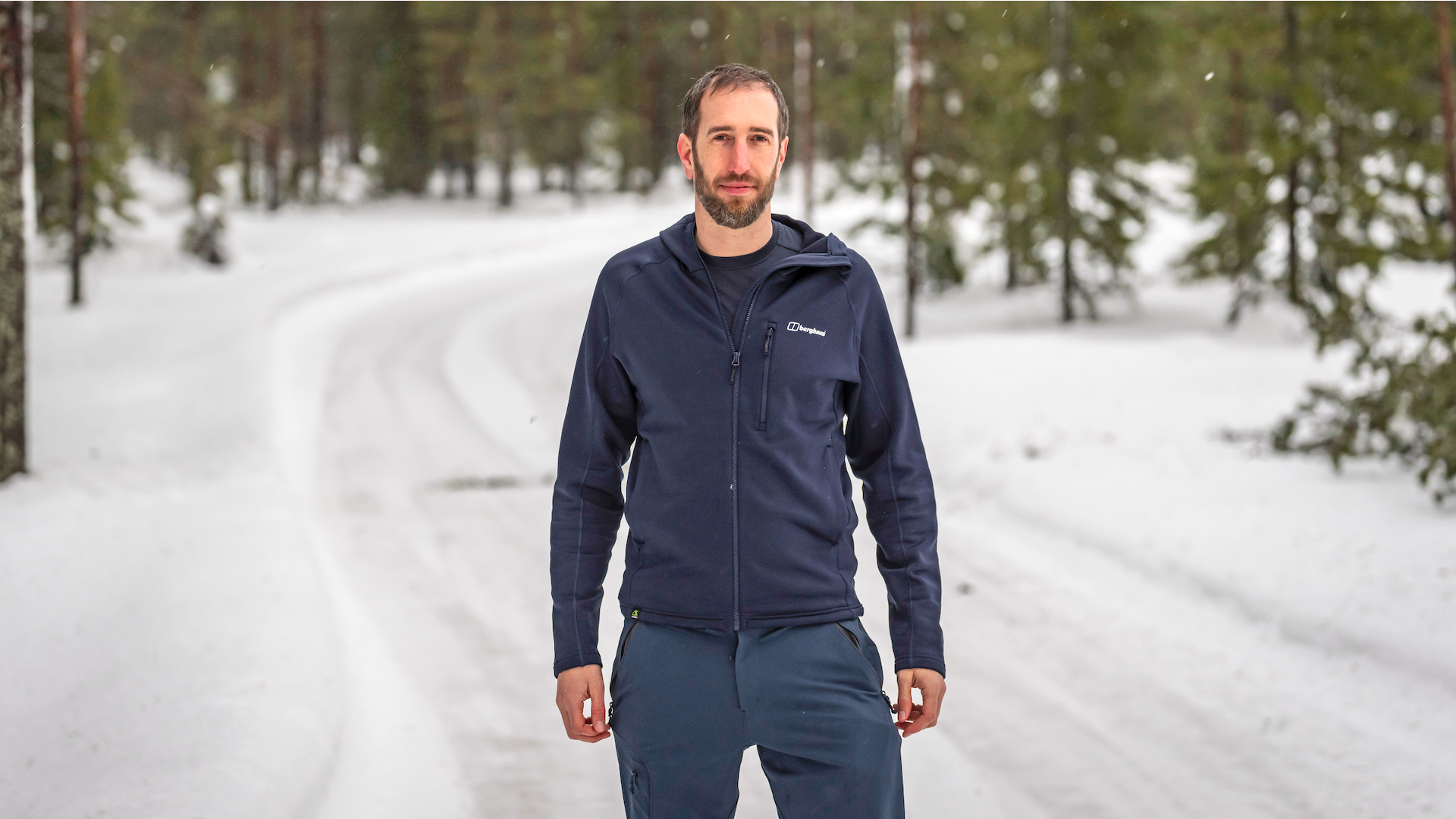
Specifications
Reasons to buy
Reasons to avoid
This stylish and functional fleece top, the midweight Carnot Hooded Jacket from Berghaus "does the basics very well indeed" according to our expert tester. We found that it makes for an excellent mid layer, worn under a wind and waterproof shell during cold and wet winter days spent hiking in the hills, or on its own if the weather is good enough.
Although many people will wear this fleece over the top of a base layer, we found the Carnot to be luxuriously comfortable next to the skin thanks to its superb lining, and the drawstring hem adjustors make it simple to dial in a close fit and keep drafts out, helping maintain a great level of warmth. It also contains various pockets, and looks great, allowing you to wear it day to day with no problems.
While there isn't a level of flashiness or or many innovative features to the jacket, this is a dependable and excellent quality option that won't let you down. Our reviewer frequently picked the Carnot over many others we tested for day to day wear too, a huge endorsement.
Read our full Berghaus Men’s Carnot Hooded Jacket review
The best lightweight fleece jacket
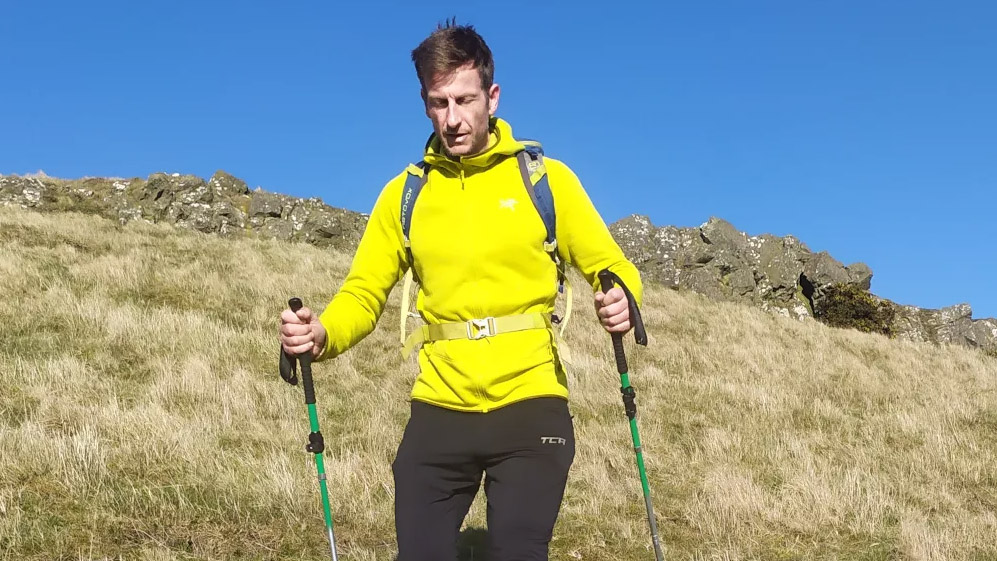
Specifications
Reasons to buy
Reasons to avoid
The Arc’teryx Kyanite Hoody "strikes the perfect balance between warmth, weight, mobility, and moisture management" according to our expert reviewer. The plush Polartec Power Stretch Pro fabric used to make it pairs a tough nylon face fabric with a super soft, brushed interior for next-to-skin comfort with above-average ruggedness and durability.
Gusseted underarms, four-way stretch fabric and articulated patterning all work to give a fuller and freer range of movement. This all makes it one of the best mid layers out there for climbing and scrambling, which we were doing plenty of during the test period.
There's a handy interior pocket that can hold most phones, an ergonomically-shaped 'ScubaHood' that doesn’t flap in your eyes despite the lack of a cinch, and a 'No Slip Zip' to prevent accidental unzipping at an inopportune moment! The fit on the Kyanite is on the neat side but happily there’s more than enough stretch in the fabric to accommodate a fuller midriff. One of the best lightweight fleeces on the market.
Read our full Arc’teryx Kyanite Hoody review
The best budget fleece jacket
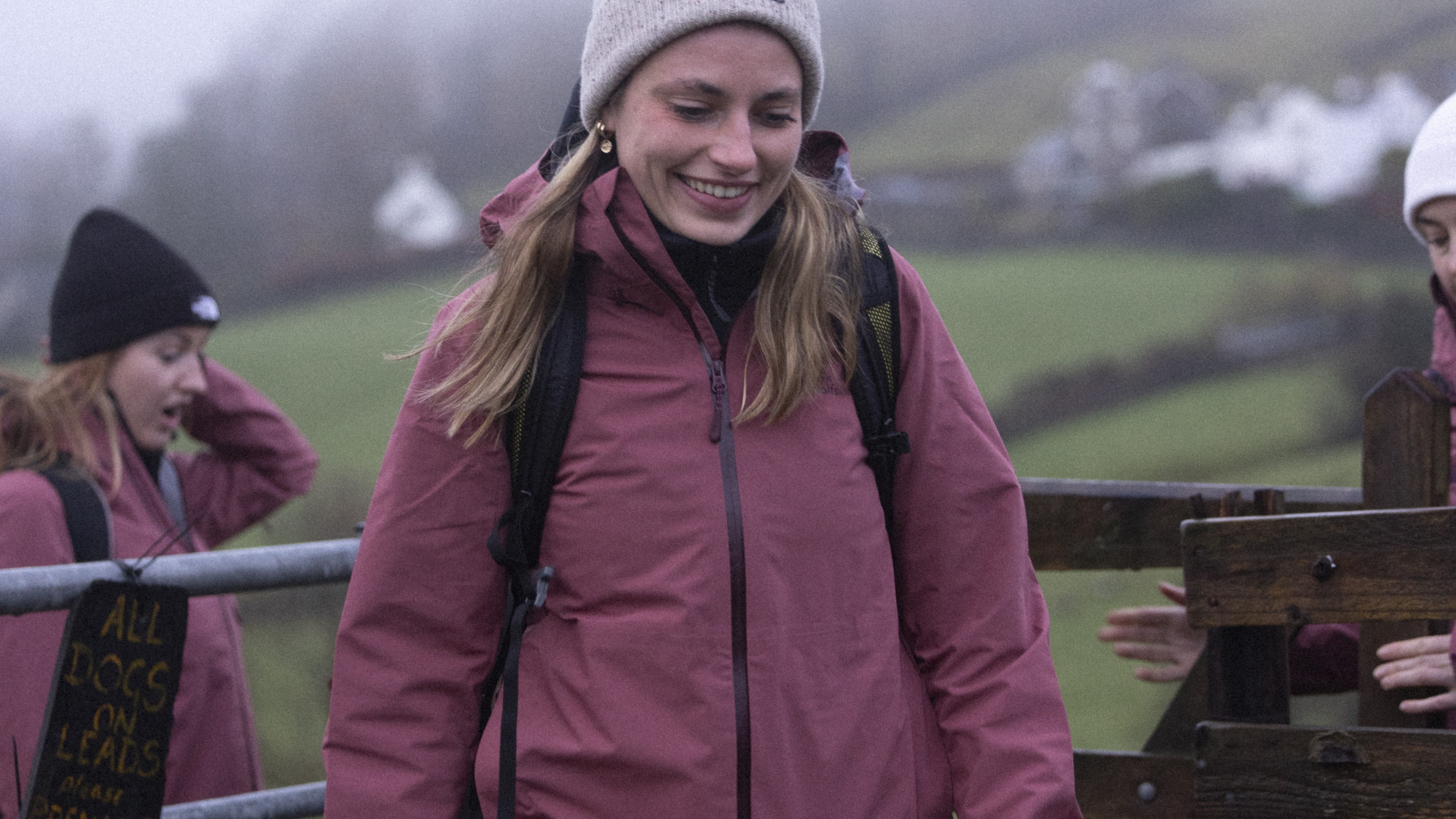
Specifications
Reasons to buy
Reasons to avoid
Made for more hardcore pursuits than the average fleece allows for, the Jack Wolfskin Alpgrat Pro Insulated Fleece is an excellent pick if you're looking for added insulation, both as a mid-layer or as an outer layer for high aerobic cold weather activities. This is thanks to its softshell appearance, boasting Pertex Quantum Air fabric which provides windproofing over your chest and shoulders.
The trade off is the size and weight of the fleece, although it isn't as bulky as you might think, as you're still able to pack it down and layer it if needed. The Alpgrat Pro is also very stretchy and breathable, with a well fitting hood, although there are some missing features, such as a lack of adjustable hem or thumb loops. If you want something large, that will act as a softshell while still keeping you warm, this is a great choice.
Read our full Jack Wolfskin Alpgrat Pro Insulated Fleece review
The best fleece jacket for breathability
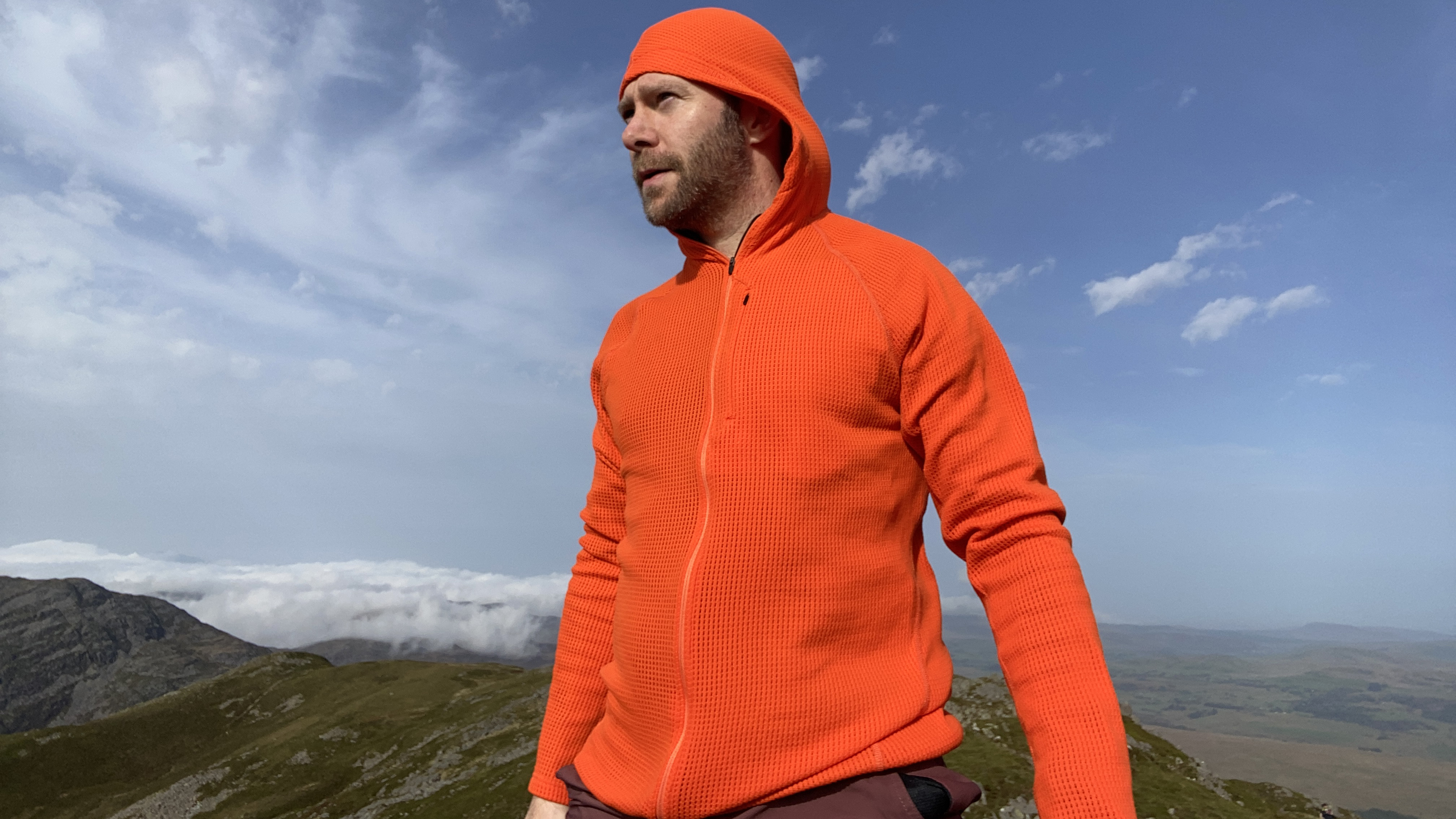
Specifications
Reasons to buy
Reasons to avoid
The Pace Flow Houdi is a lightweight mid layer that aims for maximum breathability, while regulating your body temperature to keep you cozy in cold climes without making you overheat and getting sweaty.
The Houdi incorporates a holey mesh and Polartec’s Power Dry fabric which has been designed to give you the best of both worlds if you wear it as either an inner or outer layer. As an inner, the air in the mesh holds heat, providing insulation. While as an outer, it’s designed to be a wonderfully cool and breathable jacket. In practice, our expert reviewer says that the Houdi "really in its element when worn as a mid layer during dynamic hiking activities," though it might not be warm enough for use as an outer layer, unless you're planning to run in it.
There are other thoughtful details in play here aside from its breathability - the fabric is 100% recycled polyester, while the zippered chest pocket comes in handy for storing small items. the hood is a comfortable, snug fit, and an elasticated drawstring enables you to tighten or loosen the fit when you want more or less ventilation. It's pricey, but worth it.
Read our full Houdini Men’s Pace Flow Houdi review
The best fleece jacket for year-round wear
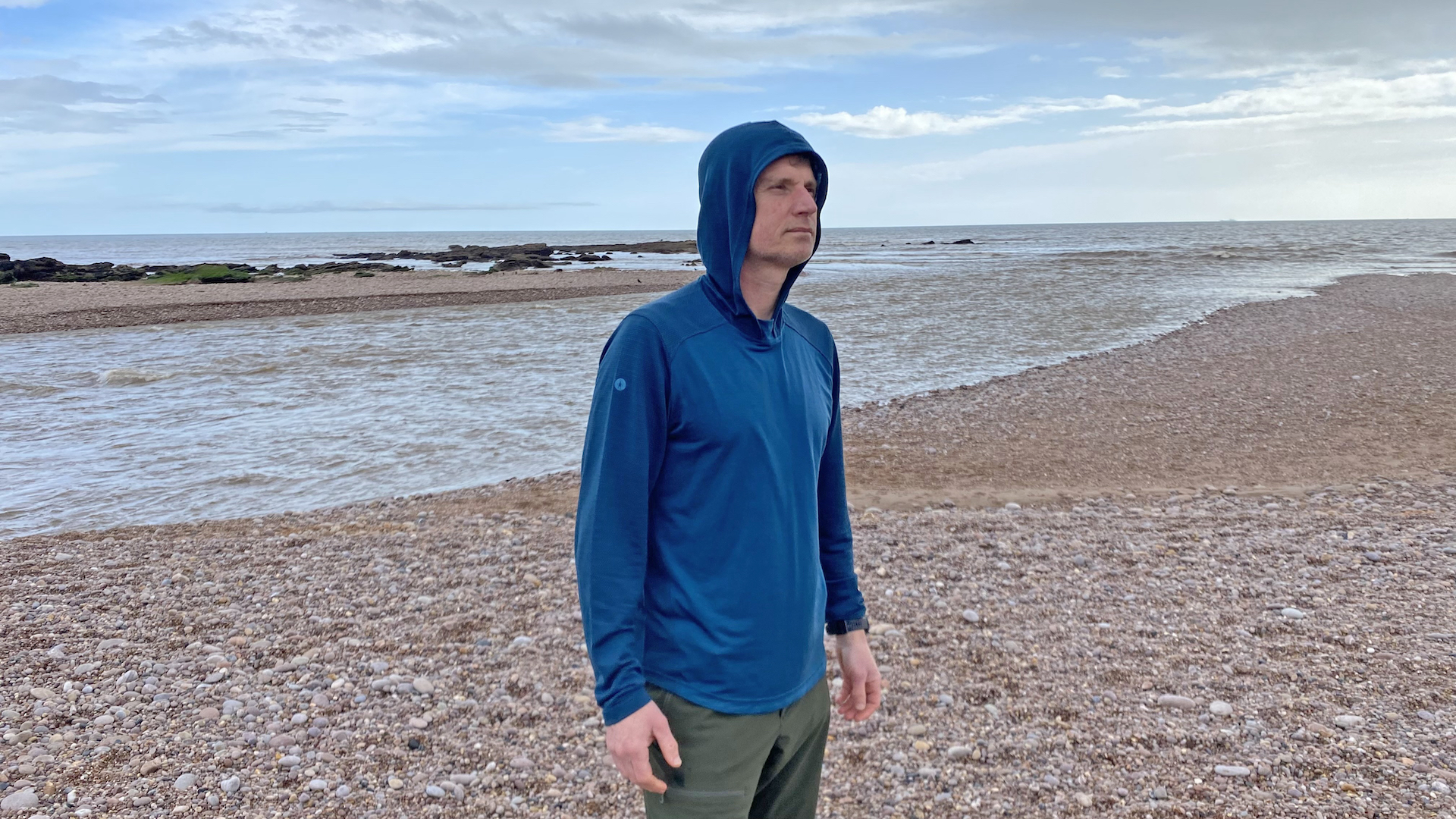
Specifications
Reasons to buy
Reasons to avoid
A versatile hoodie that can be used for multiple activities, the Smartwool Men’s Active Mesh Hoodie running top, in place of a hiking shirt or as a lightweight alternative to a fleece jacket can also be used all year round, from chilly summer evenings in camp to frosty winter mornings as part of a layering system.
In super cold conditions you might want to look at something some substantial, but our expert tester said it was "breathable, lightweight, long-sleeve layer that will provide some thermal protection from cool breezes without making you pour with perspiration during ascents". It can be used as a running top, in place of a hiking shirt or as a lightweight alternative to a fleece jacket.
The wool construction is comfortable too, adding warmth if needed through its well fitting hood, while the breathable polyester mesh on the back panel, shoulders and sleeves aid its viability as an underlayer. It does have a confusing amount of mesh on the shoulders, potentially weakening the hoodie long term as well as not really making sense as an inclusion. The lack of thumb loops is another source of criticism, as is the omission of a women's version.
Overall though, the Smartwool Men’s Active Mesh Hoodie does exactly what you want a fleece top to do without making a massive fuss about it. It acts as an excellent insulating layer under a water- and windproof shell jacket when conditions are inclement, and works well as a nice-looking outer layer when the weather is better.
Read our full Smartwool Men’s Active Mesh Hoodie review
The best for high energy activities
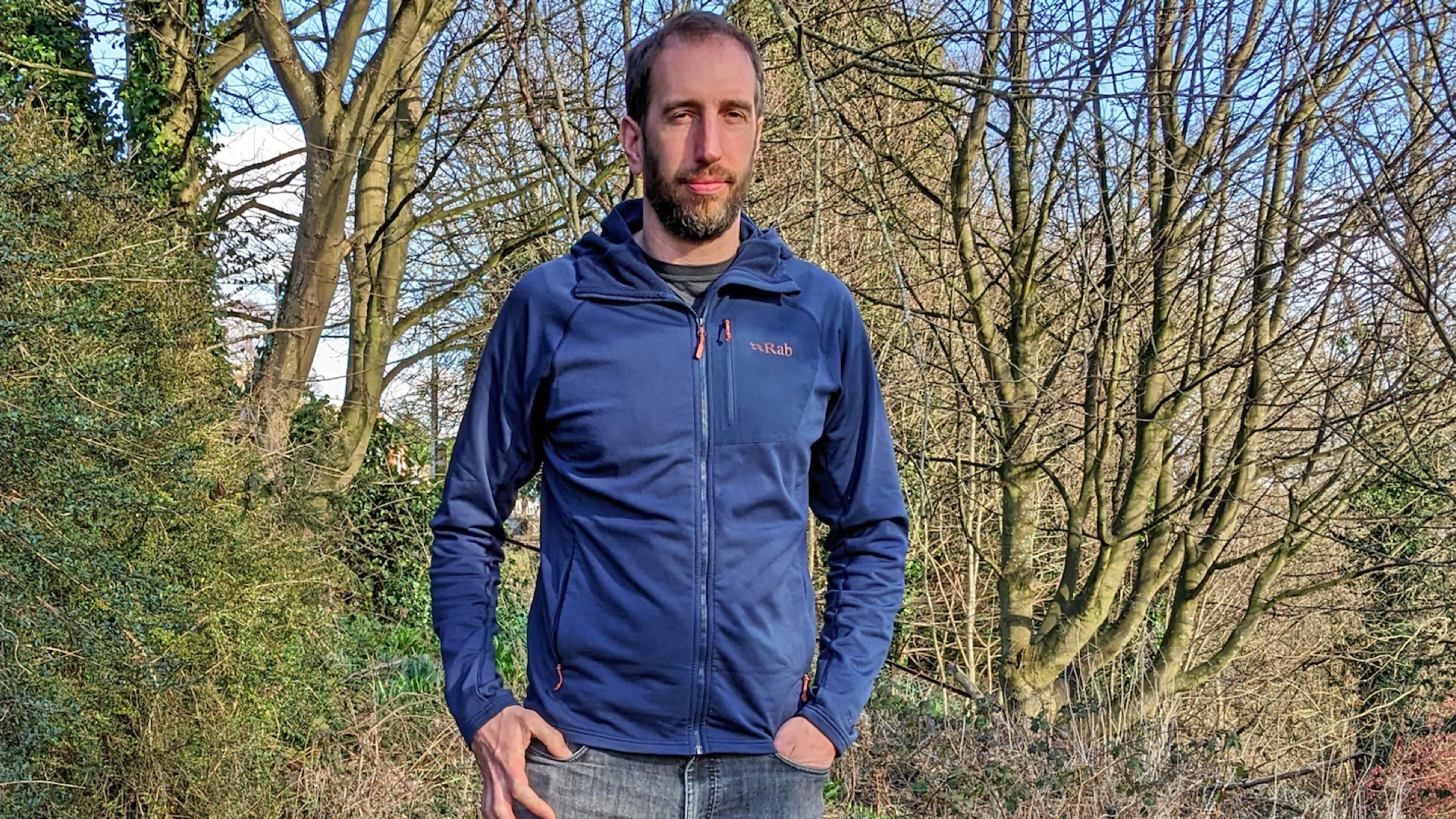
Specifications
Reasons to buy
Reasons to avoid
The Rab Superflux Hoody boasts is thin and stretchy, with excellent breathability and a comfortable feel. It's a versatile fleece, perfect for all sorts of high-energy activities – from hiking, biking, hill walking and fastpacking through to ski touring, scrambling and rock climbing.
Useful thumb loops are handy for glove wearers, while the many pockets make the Superflux more useable as an outer layer during warmer months. A midweight top, it doesn’t supply a huge amount of warmth, but it’s designed for active use, not for standing around in the cold. The body-hugging performance-orientated fit means it works well as a mid layer beneath a waterproof shell. The hood is snug in keeping with the rest of the garment, and the material is of great quality, although it's a shame that it contains just 1% recycled content. Our expert tester thought it might be too tight for some wearers, but flattering for wearers of an athletic build. If you're looking for something to complement a tough and sweaty, high energy activity, this is one to consider. If you're looking for a standalone fleece that keeps you warm, look elsewhere, unless you're willing to layer up.
Read our full review of the Rab Superflux Hoody
The best fleece jacket for ethical production
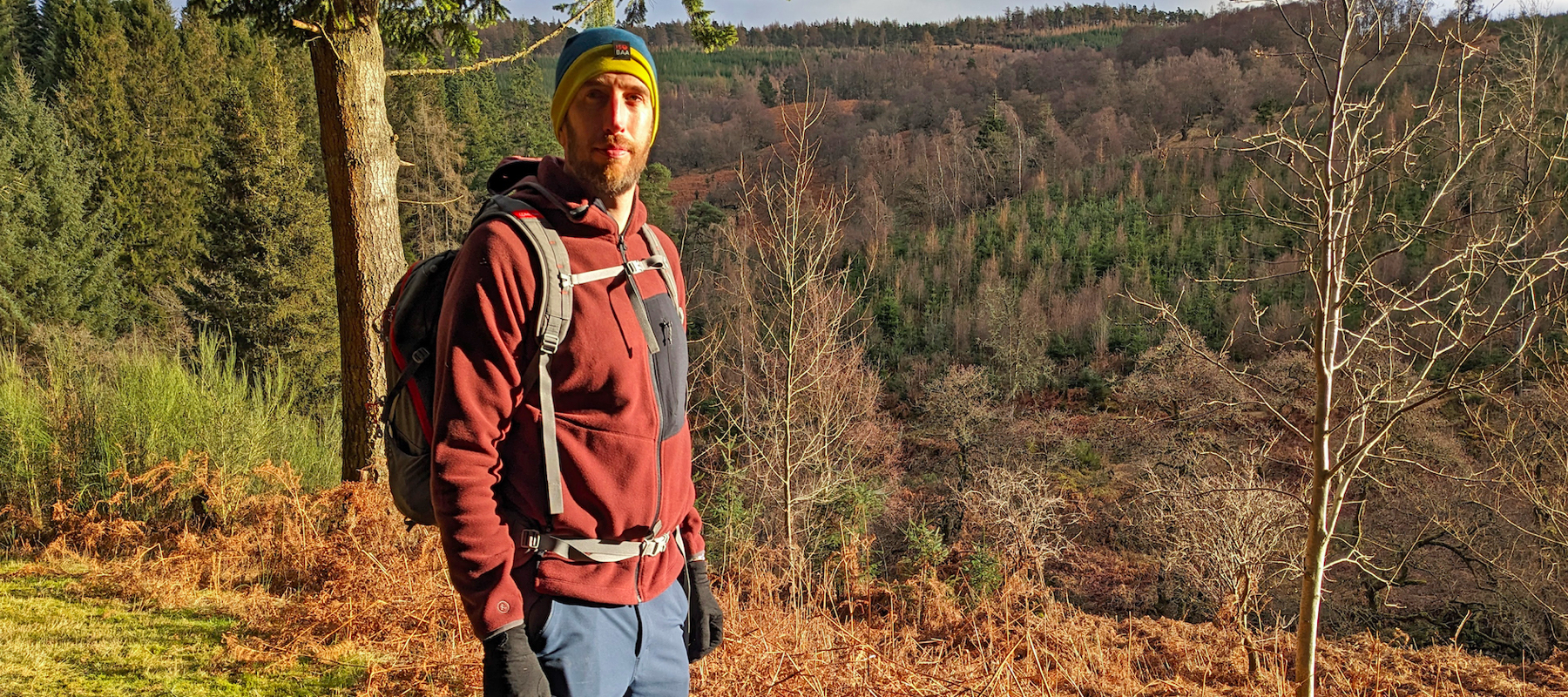
Specifications
Reasons to buy
Reasons to avoid
Made by a small company based in Boulder, Colorado, the Artilect Supermoon Bio Hoodie is, according to our expert, a warm mid-layer "made from 100% recycled 260gsm PrimaLoft Bio fleece, a biodegradable fabric that’s super soft, highly breathable and provides excellent thermal insulation". The warmth-to-weight ratio is indeed impressive, with a cozy inner liner that extends to the hand pockets. Its panels are very durable and well made too, although the fleece is prone to bobbling.
It's also quite pricey for a fleece, but its environmentally friendly construction arguably warrants paying a little more. It may be a little warm for those that run hot, but as with other fleeces, a cold wind will cut through and give you reason to add a layer. Overall, the Artilect Supermoon Bio Hoodie is a well made and cozy mid layer helps the planet at the same time as keeping you warm.
Read our full Artilect Supermoon Bio Hoodie review
The best fleece jacket for skiing
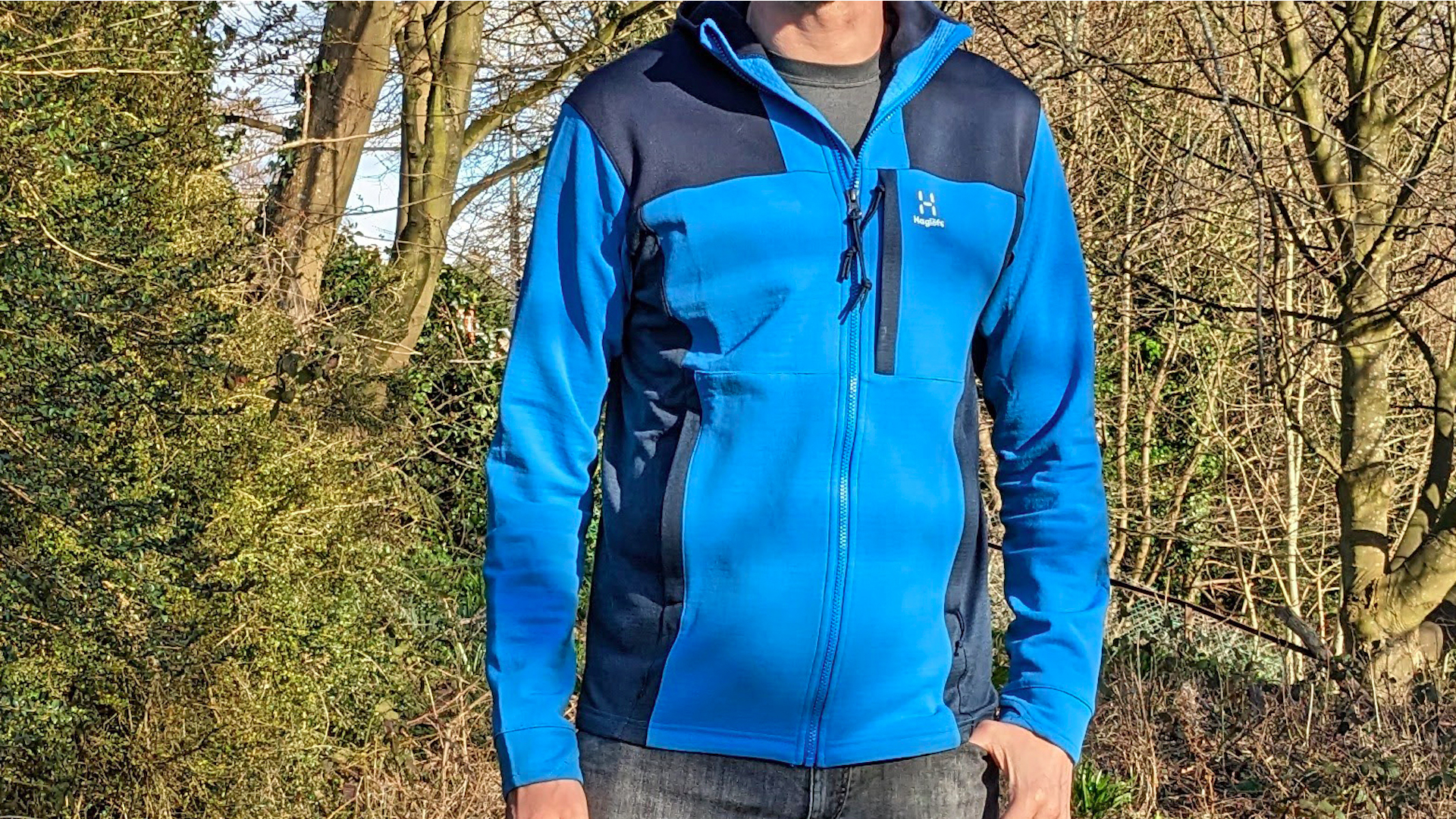
Specifications
Reasons to buy
Reasons to avoid
You might assume the Haglöfs Vassi Mid Hood fleece jacket to be quite warm, given that it's designed for high-output winter pursuits such as backcountry skiing. In reality, this thin jacket excels as a breathable, stretchy layer beneath something much thicker and warmer, doing a niche job very well indeed.
On a ski slope, our reviewer understood the merits of the Vassi, with the breathable fabric preventing overheating, with its ability to "quickly wick away sweat from the body" a notable positive for the jacket. it is also versatile enough to be worn outside of snowsports, proving to be an effective layer for day to day activities, thanks to its comfort and practicality.
While there's not many colors to choose from, the Haglöfs Vassi Mid Hood fleece jacket is a great pick underneath a brighter outer layer, and one that suits extreme, cold sports well.
Read our full Haglöfs Vassi Mid Hood fleece jacket review
The best fleece jacket for weather resistance
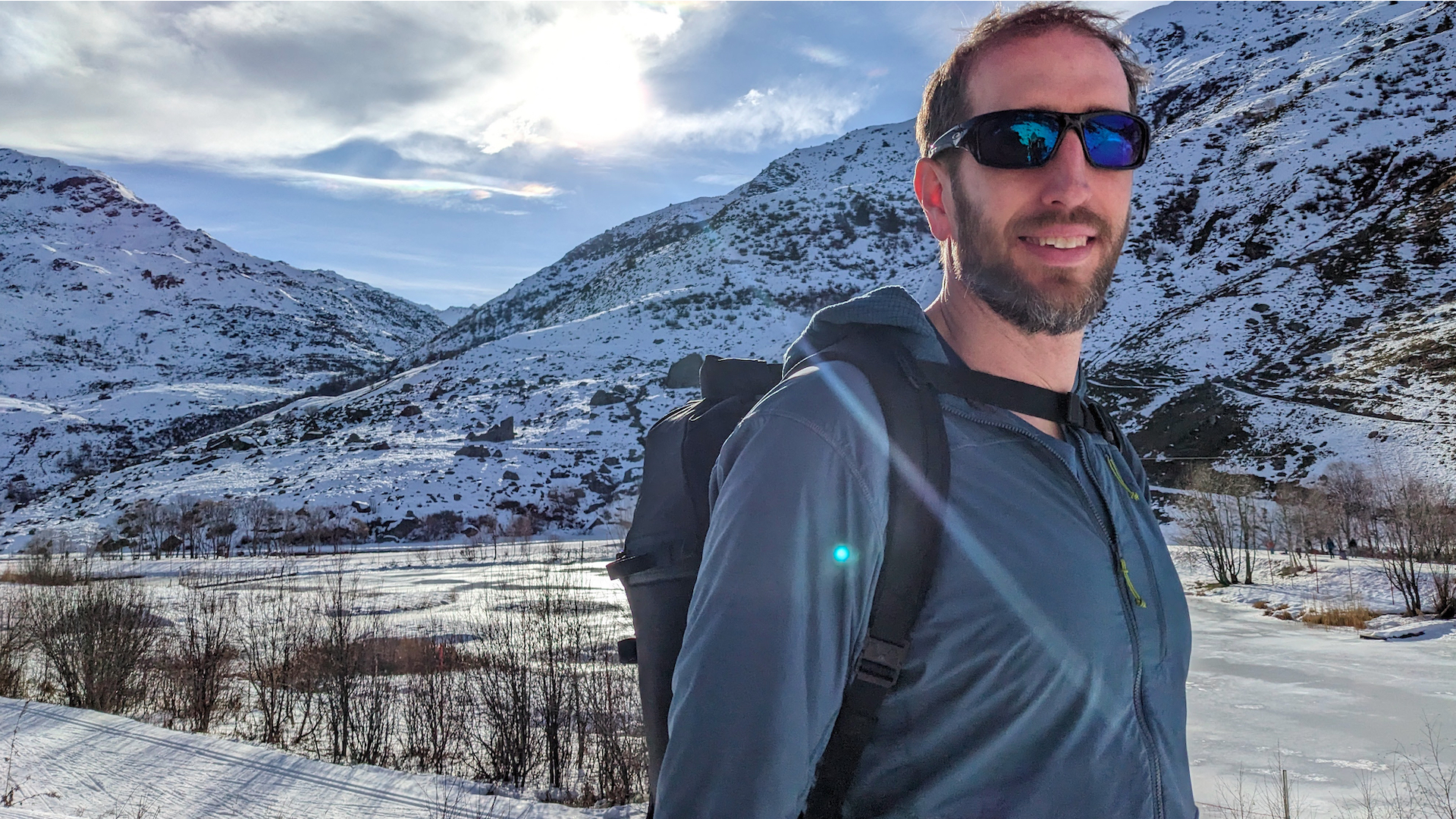
Specifications
Reasons to buy
Reasons to avoid
A useful mid-layer for tough conditions, the Rab Ascendor Summit Hoody is a hybrid fleece that keeps your warm and comfortable, but also protects against the elements with its hardwearing materials. It features a fleece on the lower body, back and forearms, while the chest, shoulders and biceps feature windproof Pertex. This makes the Ascendor ideal for hiking in harsh weather, adding a great deal of protection while giving the wearer the breathability needed from a mid-layer.
It's also nice and light, and there are some welcome features, from a sung under-helmet hood, thumb loops to prevent cold spots between the cuffs and gloves, and a small chest pocket. The fit is trim, making it easy to layer under a warmer or waterproof jacket, but it could be a bit tight for some.
It's fairly expensive too, and our reviewer thought the noisy, crinkly fabric made it unsuitable to wear day to day, but otherwise the Rab Ascendor Summit Hoody serves its purpose well. If you're faced with harsh conditions, this mid-layer fleece has your back.
Read our full Rab Ascendor Summit Hoody review
The best hybrid fleece jacket
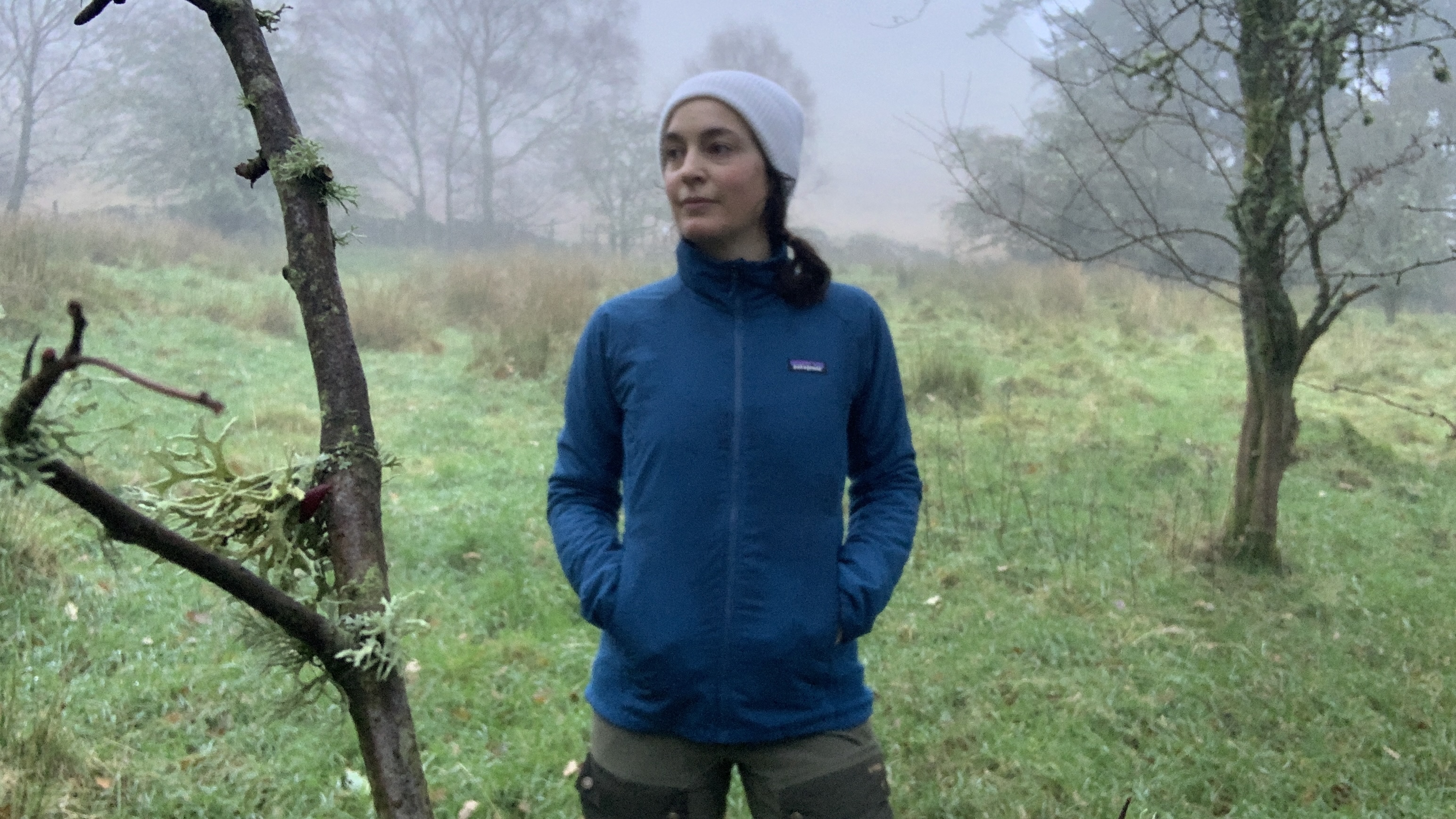
Specifications
Reasons to buy
Reasons to avoid
The Patagonia Nano-Air Light Hybrid Jacket has focused on practicality with its design, resulting in a super lightweight and breathable layer that also forms an effective barrier against freezing temperatures. There are others on this list that attempt a more hybrid design, but this one is the best example, able to maintain a lightness that adds to its versatility. The cut is slim and flattering, while the sleeves, shoulders and front panels are made using Nano-Air softshell insulation, keeping you well protected.
The textured fleece found at the underarms can get smelly , and we'd recommend washing it frequently. It's nice and durable though, as many Patagonia products are, and although expensive, its versatility means you can wear it all year round, potentially justifying the price. If you want a fleece that can do it all, the Nano-Air is well worth considering.
Read our full Patagonia Nano-Air Light Hybrid Jacket review
The best premium fleece jacket
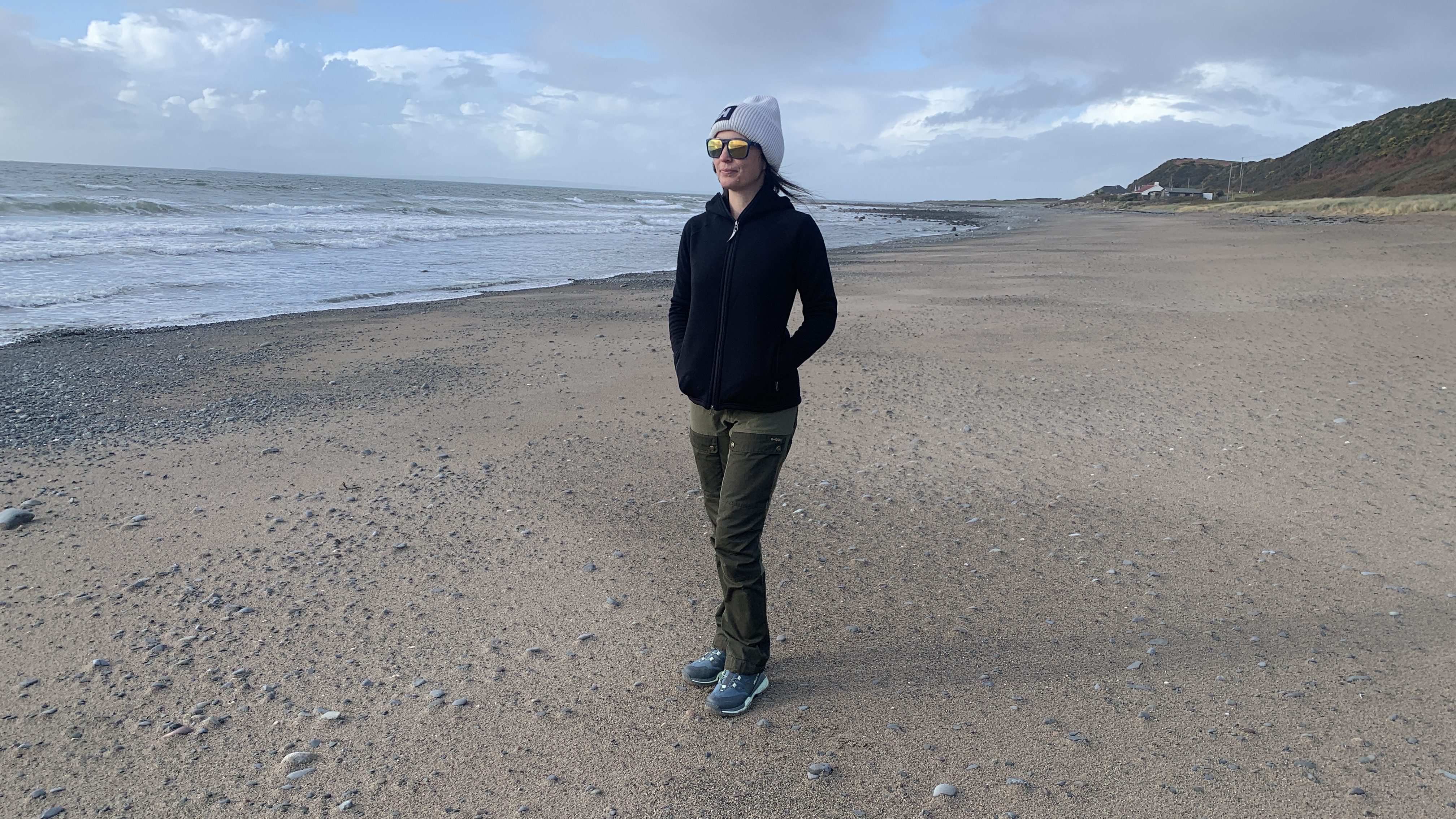
Specifications
Reasons to buy
Reasons to avoid
With its 20 year long pedigree as proof of its excellence, the Houdini Power Houdi is a premium hoodie that has stood the test of time, and continues to be one of the best mid-layers out there. While you pay a bit more than you might for other fleece jackets, you get a lot for your money, and according to recent research by Houdini themselves, it'll last over 10 years.
The material of the Power Houdi is highly breathable and stretchy, giving you max comfort as you go about your day. The jacket also features Polartec Power Stretch Pro, providing reliable warmth in frosty temperatures thanks to its warm lining. There are other positives too, with an adjustable hem and thumb holes adding a level of convenience, while the excellent hood and deep pockets bring a level of quality. It's also eco friendly as a Bluesign-approved garment, and the fleece itself doesn't get too smelly, one of the common gripes surrounding such material.
Although the price may put people off, the premium feel of the Power Houdi is undeniable, and it is certainly one of the better fleece jackets on this list.
Read our full Houdini Power Houdi review
The best fleece jacket for versatility
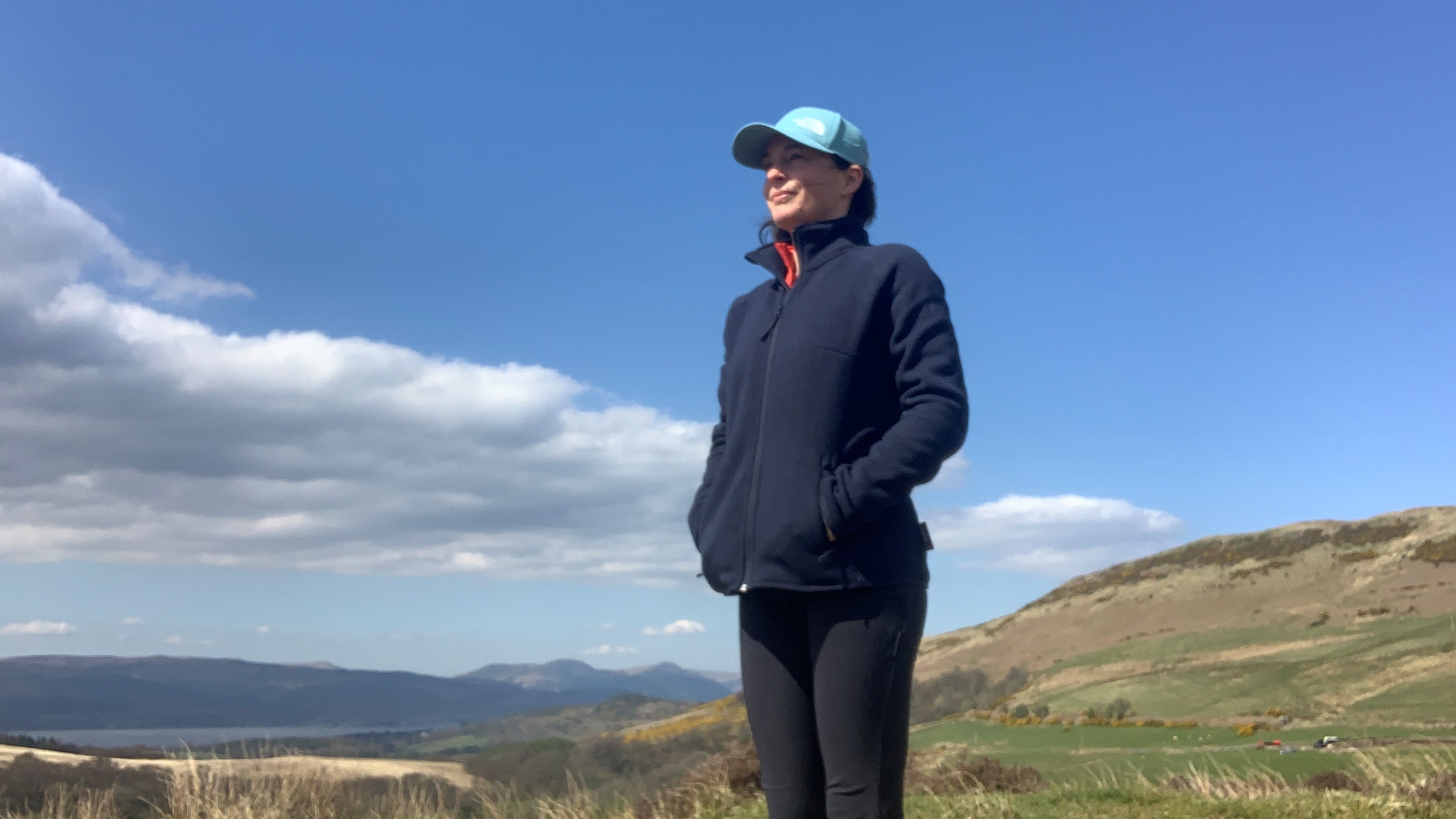
Specifications
Reasons to buy
Reasons to avoid
The Helly Hansen Varde Fleece Jacket 2.0 is one of the more versatile fleeces out there. It's warm enough to be used as an outer layer, yet thin enough to be used as a mid-layer for colder adventures. The roomy fit also contributes to this, as it seems to be designed to work as a jacket over other layers. Wear it as a mid-layer though, and you'll be impressed with its breathability and ability to retain heat.
While the lack of an adjustable hem is definitely felt due to its bagginess, there are other positives to the Varde 2.0. Your hands are certainly taken care of, with long sleeves and thumb loops offering an alternative to the many pockets available. Also it won't get as smelly as some fleeces out there, another benefit of it being a bit looser than similar products. Overall this is a versatile fleece that you can wear in multiple layering configurations, and therefore suits a range of activities.
Read our full Helly Hansen Varde Fleece Jacket 2.0 review
The best fleece jackets comparison table
Fleece jacket | Price | Weight | Style |
Berghaus Men’s Carnot Hooded Jacket | £125 (UK) / €105.00 (EU) | 520g / 18oz | Standard fleece hoodie |
Arc’teryx Kyanite hoody | $179 (US) / £155 (UK) | 425g / 15oz (men's)/365g / 12.9oz (women's) | Standard fleece jacket |
Jack Wolfskin Alpgrat Pro Insulated Fleece | $119.95 (US) / £130 (UK) | 14.1oz / 400g | Budget fleece jacket |
Houdini Men’s Pace Flow Houdi | $200.00 (US) / €200.00 (EU) | 286g (men’s large) | Lightweight hoodie |
Smartwool Men’s Active Mesh Hoodielover | $100 (US) / £95 (UK) | 252g / 8.9oz | Mesh hoodie |
Rab Superflux Hoody | 160 (US) / £100 (UK) / €120 (EU) | 402g / 14oz | Full zip fleece jacket |
Artilect Supermoon Bio Hoodie | $220 (US) / £150 (UK) / €170 | 500g / 17oz | Mid weight fleece jacket |
Haglöfs Vassi Mid Hood fleece jacket | £170 (UK) / €200 (EU) | 475g / 17oz | Heavy fleece jacket |
Rab Ascendor Summit Hoody | $185 (US) / £160 (UK) / €170 (EU) | 310g / 10.9oz | Lightweight, zippered fleece jacket |
Patagonia Nano-Air Light Hybrid Jacket | $119.95 (US) / £130 (UK) | 260g / 9.17oz | Lightweight, zippered fleece jacket |
Houdini Power Houdi | $240 (US) / €155 (EU) | 400g / 14.1oz | Heavy fleece jacket |
Helly Hansen Varde 2.0 | $140 (US) / £100 (UK) | 450g / 15oz | Versatile fleece jacket |
How we test the best fleece jackets
Our reviewers test fleece jackets in a range of environments and conditions, both as a midlayer and an outer layer. Features (including thermal properties, style, breathability, materials, comfort, pockets, hoods, zips) are tested against claims made by the brand, and we assess factors such as value for money, durability, functionality and environmental impact.
Meet the testers
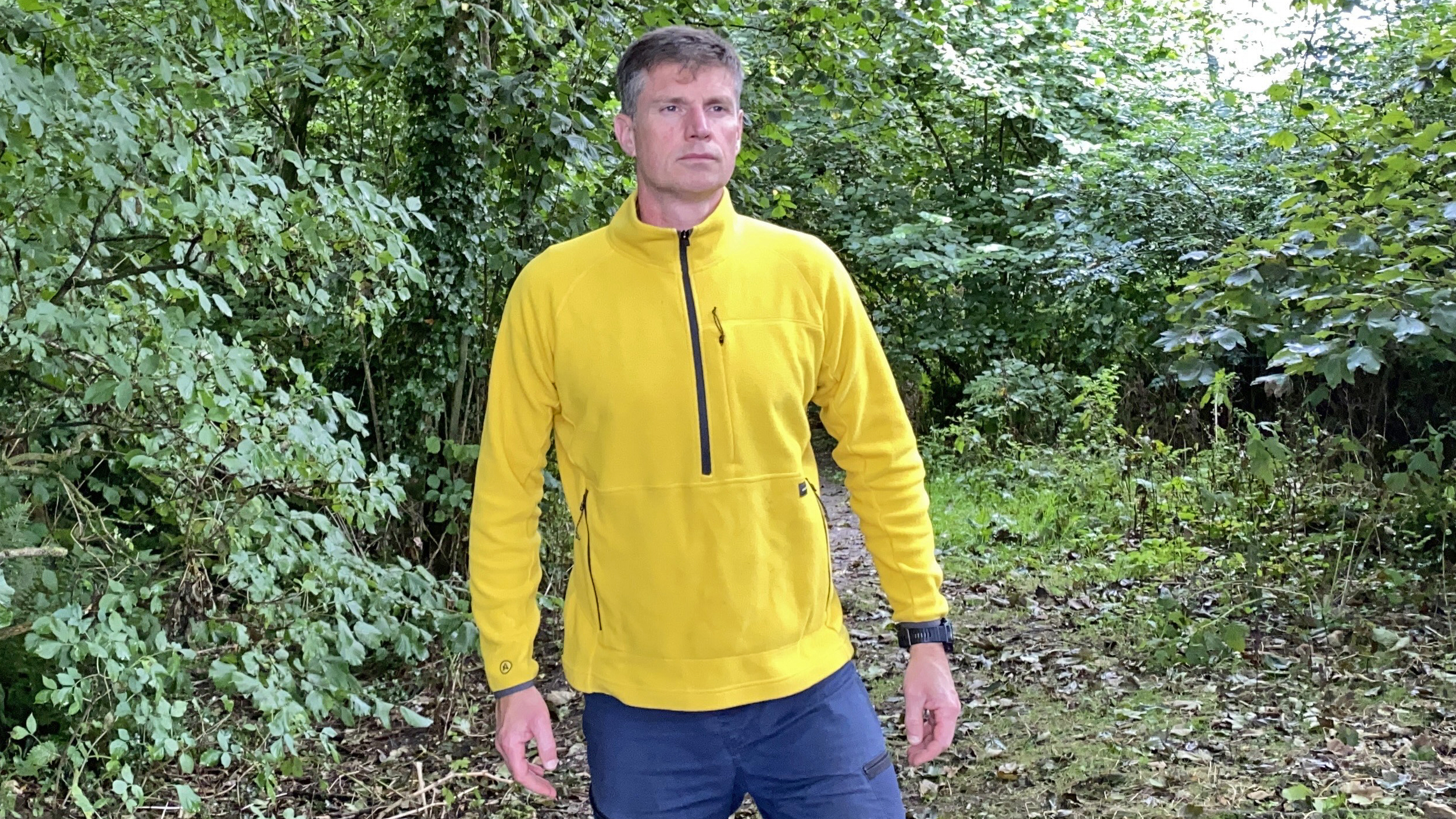
A seasoned adventurer who has spent 20 years pursuing adventure stories, Pat is one of our main outdoor gear experts. These days, he can often be found exploring the coast of England's south west, while he often journeys to the mountains to get his peak-bagging fix. He's no stranger to a quality fleece.
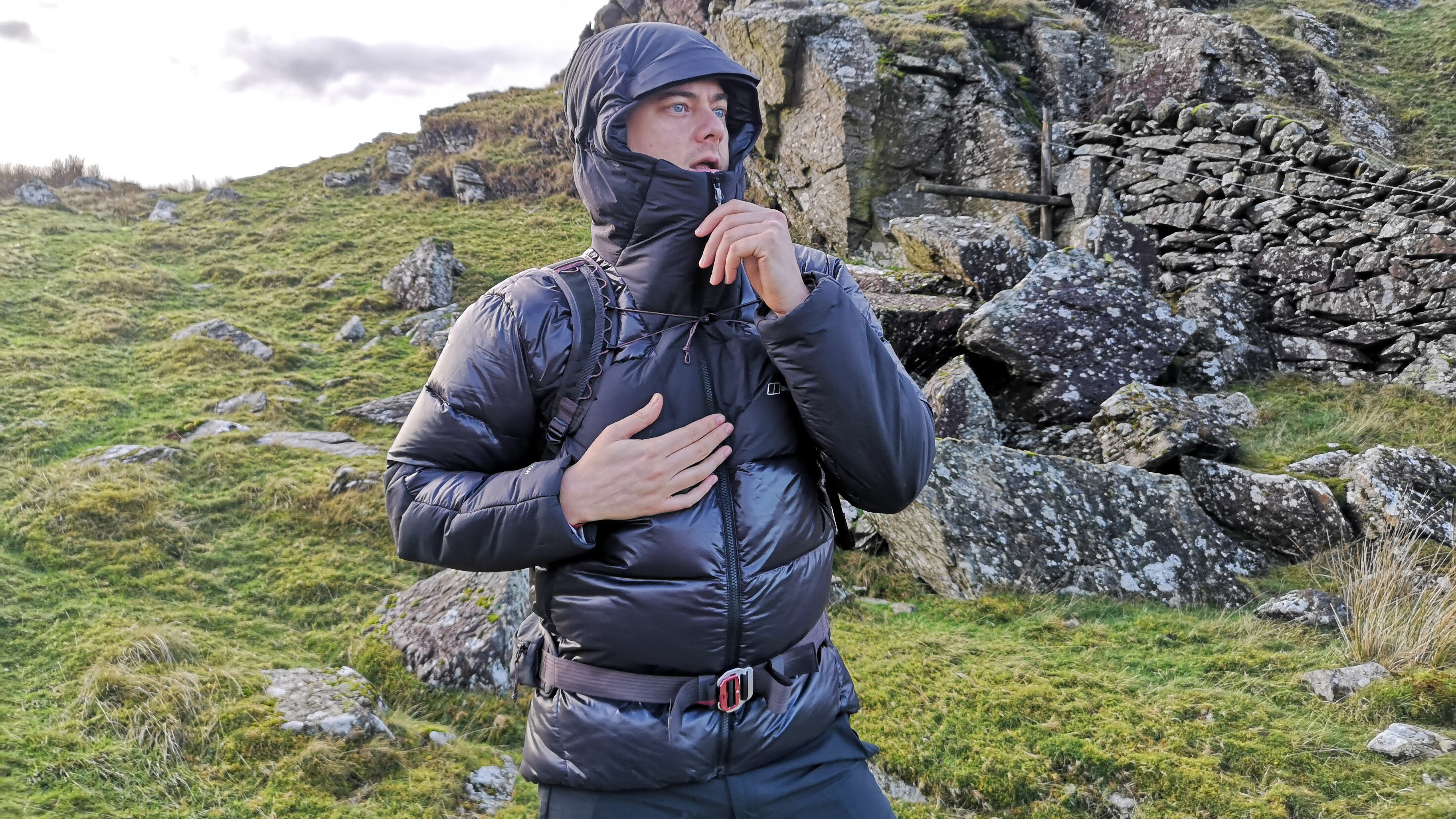
Based in Wales' stunning Eryri (Snowdonia) National Park, Matt can often be found cavorting around his local hills and mountains, which can often be a little on the nippy side. He's a huge fan of long-distance backpacking, having taken on the epic Cambrian Way across the rugged spine of Wales. A seasoned gear expert, he gives every fleece he wears a robust test.

Former Advnture editor Kieran is a climber, mountaineer, and author who divides his time between the Italian Alps, the US, and his native Scotland.
He has climbed a handful of 6000ers in the Himalayas, 4000ers in the Alps, 14ers in the US, and loves nothing more than a good long-distance wander in the wilderness. He climbs when he should be writing, writes when he should be sleeping, has fun always.

Craig has a great love for all things hiking, backpacking and wild camping. He can often be found in the British mountains, while he also enjoys the occasional trip to the European Alps. One of our main hiking gear experts, he knows a thing or two about effective layering.
How to choose the best fleece jacket
As with almost all outdoor kit, the best fleece jacket for you will depend on a number of factors – not least, when and where will you wear it. In addition, though the primary function of a fleece jacket is to provide insulation, this can be balanced with other factors such as weight, bulk, breathability and pack size.
As a rule of thumb, the thicker and heavier the fleece fabric, the warmer it will be. On the flipside, that will also generally make it less breathable. The best lightweight fleeces are ideal for summer adventures, when you're going to be moving faster and it's going to be warmer anyway. It will probably stay in your day pack until you hit cols, ridges and summits, but that's fine.
If you’ll be moving fast or tend to run hot, bear in mind that most heavyweight fleeces will be too warm for active use – though they’re great for standing around in the cold or if you're belaying during a climb. Numerous different types of fleece fabrics have also emerged, generally developed with one of two things in mind: to either increase the warmth for weight of the garment or to enhance its breathability, so it can be worn during high-output, energy-intensive activities.
What fabrics are fleece jackets made from?

Originally, ‘fleece’ referred specifically to polar fleece, a synthetic fabric made from polyester. Today, however, a ‘fleece’ has become a catch-all term for pretty much any warm and cozy mid layer jacket that does the job of a traditional wool sweater, jumper or pullover. As such, you might find some ‘fleece jackets’ that aren’t actually made from polyester fleece at all, or which are a hybrid of synthetic and natural fibres (including wool).
Popular forms of Polyester fleece available now include classic polar fleece (in various weights), microfleece (tightly woven pile), gridded microfleece (with good breathability for active use), shearling/pile fleece (heavier weight), high-loft fleece (super-fluffy, offering the best warmth for weight), hardface/techface fleece (designed to prevent to pilling), Thermal Pro (developed by Polartec, typically with a knitted face) and Power Air (also from Polartec, designed to counter the issue of microfibre shedding).
How are fleece jackets designed?
While the fleece fabric type and weight primarily dictate the warmth and breathability of a fleece jacket, factors like construction and overall design also have an impact. Many of the best fleece jackets now utilise a zoned or hybrid construction. This means that panels of different weight fabrics are employed to make the garment more breathable or stretchy, resulting in greater comfort and better articulation for active use. You might find lightweight or stretch inserts used along the sides or under the arms of a jacket accordingly.
What features should I look for in a fleece jacket?
Since they are primarily designed as mid layers, technical fleece jackets don’t always feature a hood, and some may not even have pockets. Obviously, these are less important if you’re wearing your fleece underneath a shell, since your outer layer is likely to have its own hood and pockets. Most fleeces that lack a hood still have a stand-up collar to help lock in core warmth though.
Of course, many users do prefer a fleece with a hood and pockets. A hood adds valuable insulation and can’t get lost or blow off your head, unlike a hiking hat. It is also easier to wear beneath a helmet. Hand or hip pockets are useful to keep hands warm as well as for storage for items like hiking gloves. So are zipped chest pockets or even arm pockets. These all add versatility, especially if wearing a fleece as a standalone layer.
Fleece jackets will have a full-length main zip. Fleece pullovers just have a quarter zip or a deeper half zip at the neck. Look for zips that are backed with a baffle, which helps to prevent draughts and also adds to overall comfort. Similarly, a chin guard at the top of the zip is always a welcome detail, preventing irritation.
Cuffs and hems should be close-fitting for optimum thermal efficiency. Some fleeces have elasticated cuffs and hems (or even a hem drawcord) to help lock in heat.
One feature that is commonly neglected are thumb loops. These can be used to help cuffs cover the wrists and stop the sleeves of your fleece from riding up, which is good in cold conditions. If you’re wearing liner gloves, thumb loops can also eliminate any exposed skin, which is great for winter mountaineering and snow sports.
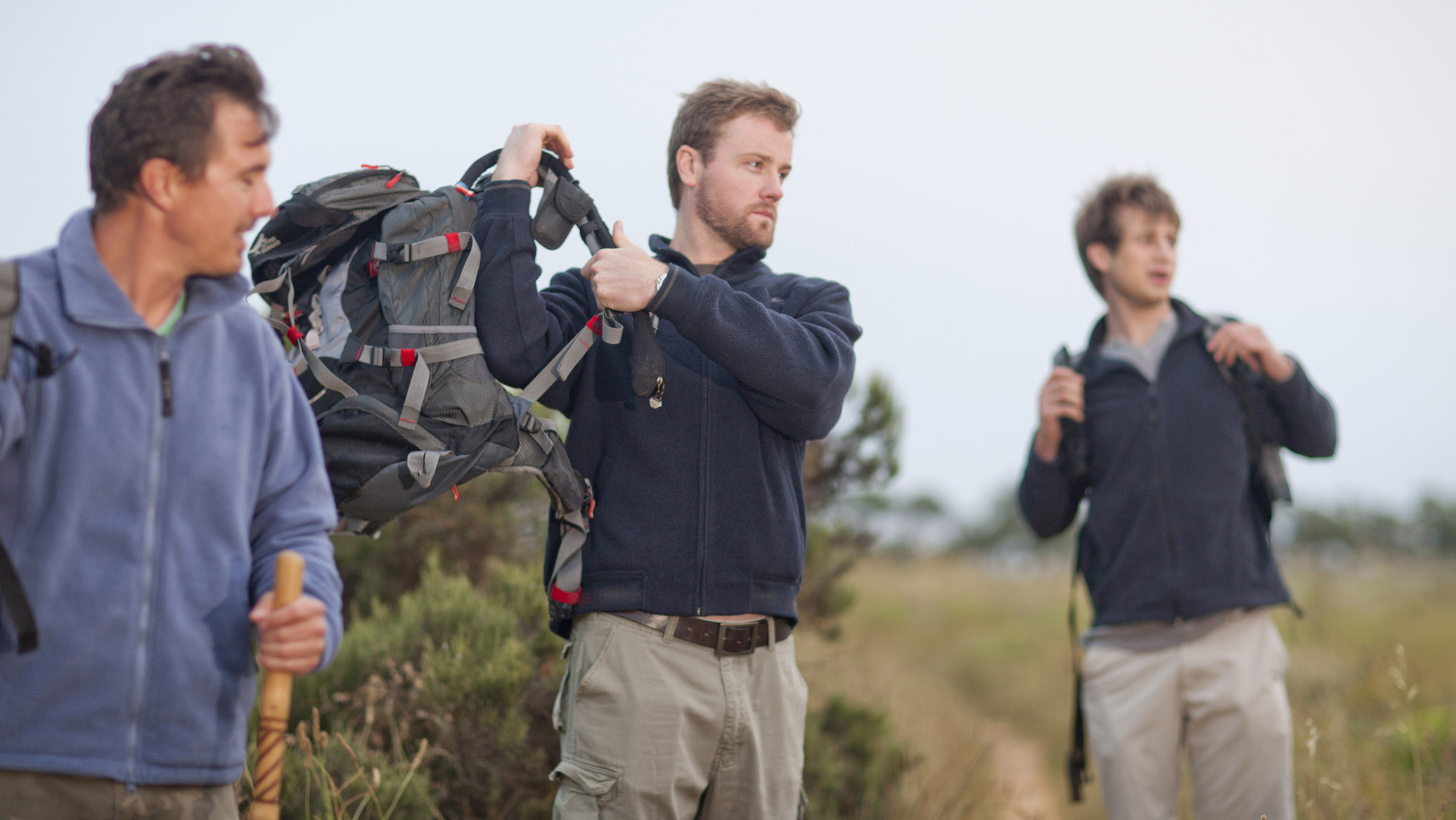
What weight and size should I look for in a fleece?
A fleece is generally worn on the hill rather than carried, but on warm days you may want to roll it up and stuff it in your backpack, so weight and pack size can be important considerations. On an expedition, you might want to stash your fleece in a dry bag with other spare clothes. They are blessedly warm on cold nights and can double up as a pillow.
A heavy and bulky fleece that takes up almost all the space in your pack and weighs you down is not particularly practical. That’s why warmth for weight and compressibility (or packability) are still important factors when looking for the best fleece jackets, even though fleece doesn’t offer the same performance in this regard as, say, a down ‘puffer’ jacket. The best lightweight fleeces combine performance with packability.
How should a fleece jacket fit?
The thermal efficiency and comfort of a fleece is greatly influenced by how it fits. Loose fitting cuffs, hems and hoods can all leak heat, limiting warmth. Generally, the best fleece jackets should allow room for a base layer underneath but should be trim enough to fit underneath your windproof or waterproof shell. Technical fleeces are usually stretchy and close-fitting. If you plan to wear a fleece as casual clothing, you might want something a little more accommodating.
All the latest inspiration, tips and guides to help you plan your next Advnture!

Author of Caving, Canyoning, Coasteering…, a recently released book about all kinds of outdoor adventures around Britain, Pat has spent 20 years pursuing stories involving boots, bikes, boats, beers and bruises. En route he’s canoed Canada’s Yukon River, climbed Mont Blanc and Kilimanjaro, skied and mountain biked through the Norwegian Alps, run an ultra across the roof of Mauritius, and set short-lived records for trail-running Australia’s highest peaks and New Zealand’s Great Walks. He’s authored walking guides to Devon and Dorset, and once wrote a whole book about Toilets for Lonely Planet. Follow Pat’s escapades on Strava here and Instagram here.
